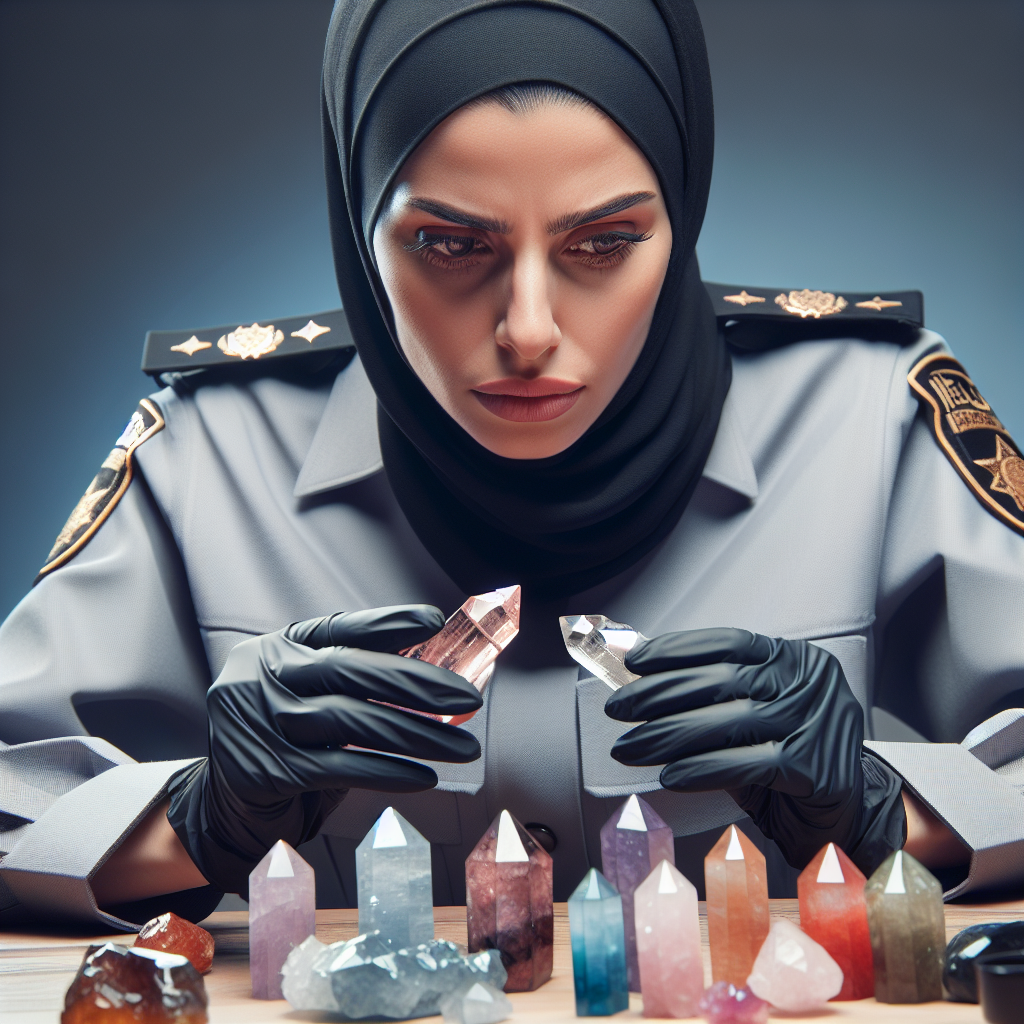In a world that seems increasingly dangerous and unpredictable, there is one trend that has been steadily growing: spiritual wellness. But as this movement expands, so too does its intersection with crime—leading to a complex relationship that is only now beginning to be understood.
Fashion Trend
From yoga studios popping up in every neighborhood to crystals becoming popular accessories, the spiritual wellness wave has firmly cemented itself within our culture. However, beneath all of this lies an underbelly often overlooked—the illicit trade of supposed ‘spiritual artifacts.’ These items have provided lucrative avenues for criminal networks globally.
Designer Vision
The visionaries behind these trends are often ill-prepared for the dark side their creations may invite. Acclaimed healing crystal designer Ava Rousseau expressed shock upon hearing her designs were duplicated using cheap materials by organized syndicates trying to cash in on people’s search for spirituality.

Manufacturing Process
The production line of these counterfeit spiritual goods is alarmingly professional. Law enforcement agencies have found illegal workshops replicating renowned designers’ works or even ancient sacred symbols with startling precision—a stark reminder of how closely intertwined spirituality and material gain can sometimes become.
Market Response
The legal market response has been swift: dedicated policing units are set up worldwide while leading brands are working hard to ensure authenticity through innovative practices like blockchain technology applications for product tracking.
Cultural Influence
This battle has had profound impacts on our culture. The legal saga surrounding these crimes has captivated the public, leading to hit shows like ‘Crystal Crimes’—a dramatic crime series based on true events.
Sustainability Focus
Ironically, amidst this chaos, the focus on sustainability in spirituality-based products has grown. Increased consumer awareness and stricter government regulations worldwide are forcing change—even within criminal circles.
The spiritual wellness industry’s consumers have shown resilience. They continue searching for authenticity amongst a market tainted by underhand dealing; their quest for genuine spiritual satisfaction propelling them forward amidst chaos.
Criminals exploiting spirituality is not new but its scale today poses unique challenges for law enforcement agencies and legitimate businesses alike. These entities must find ways to outsmart criminals without hampering the innocent seekers.
This issue presents an opportunity: developing robust verification systems could drive innovation across industries while enhancing customer confidence in product origins.

